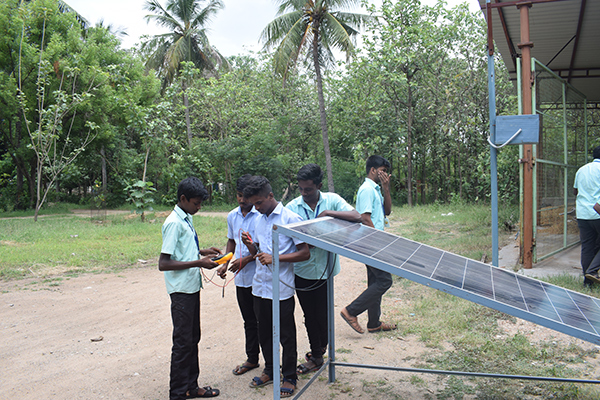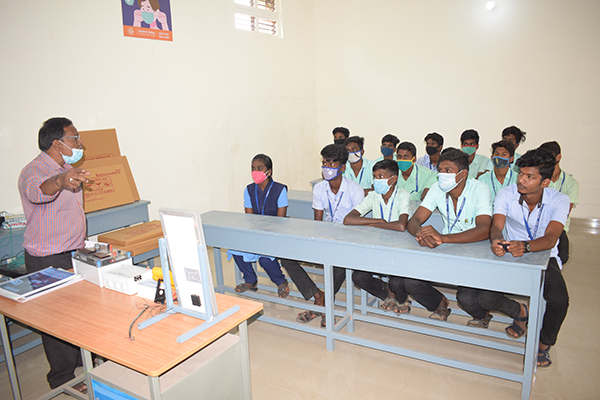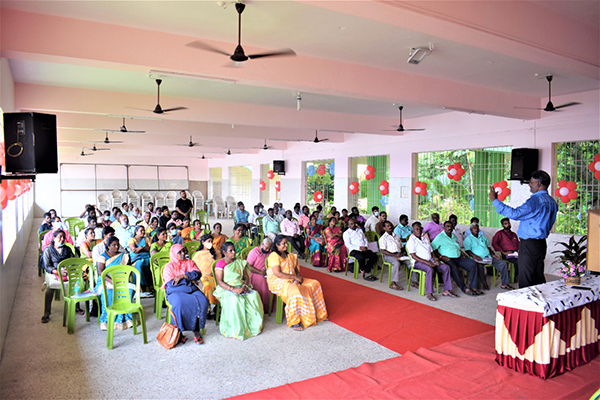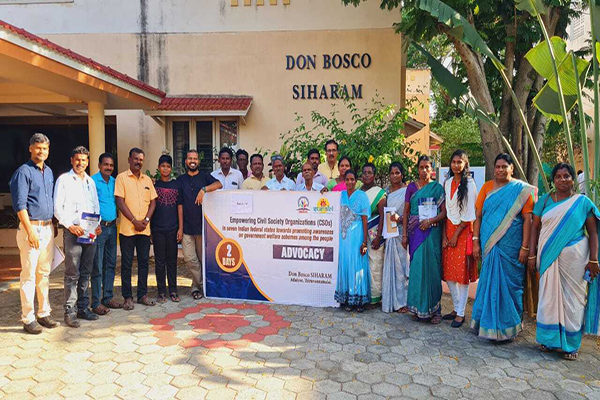Youth Projects
Solar Army


The project aims to develop youth skills and prepare the candidates to become new entrepreneurs in the solar energy sector. In five of our Technical Training institutes we have Installed 7Kw On-Grid PV system, Solar Laboratory with equipment, Training the staff in the ITI’s, Purchase of Study materials, toolkit, and stationery items, Solar training for the students and Distribution of toolkit for students. Every year 400 trainees are benefitted through this project.
Civil Organizations Society – CSO


SURABI in collaboration with BOSCONET is executing the second phase of the Project titled ‘Empowering civil society in seven Indian federal states by a capacity development program on the human-rights-based approach for non-governmental organizations’. It has the Rights-based empowerment striving towards achieving the UNDP’s Sustainable Development Goals (SDGs) – particularly on poverty alleviation, zero hunger, good health and well-being, gender equality, clean water and sanitation, decent work and economic growth, reduced inequalities, and partnership for the goals. It reaches out to 120 CSOs in each of its initiatives.
The capacity building project undertakes 5 Training modules, namely a) Participatory Approach Skills to involve the beneficiaries and the community and to empower them to encounter their problems by claiming their rights from the duty-bearers. The underlying principle is that development should be seen more as a change from the bottom up than from town down. It has been completed; b) Accessing Government Welfare Schemes educates the NGOs on the various aspects of these schemes, purpose, target group and methods of availing. It has already been conducted; c) Advocacy Skills to improve the skills of the NGOs in supporting (or opposing) an issue and persuading the decision makers to act in such a way to support (or solve) the issue. Advocacy skills help the NGOs to motivate and mobilize the community to achieve its goal (the need of the target community). The training is conducted; d) Lobbying Skills to complement the effort and impact of advocacy. Strategic lobbying creates more than just advantages for the clients; it enables win-win situation for the parties concerned. This training is completed; e) Negotiation Skills to complement the advocacy effectiveness. Advocacy and negotiation go hand in hand. But advocacy and negotiation are quite distinguishable. It is yet to be executed.
The capacity building project undertakes 5 Training modules, namely a) Participatory Approach Skills to involve the beneficiaries and the community and to empower them to encounter their problems by claiming their rights from the duty-bearers. The underlying principle is that development should be seen more as a change from the bottom up than from town down. It has been completed; b) Accessing Government Welfare Schemes educates the NGOs on the various aspects of these schemes, purpose, target group and methods of availing. It has already been conducted; c) Advocacy Skills to improve the skills of the NGOs in supporting (or opposing) an issue and persuading the decision makers to act in such a way to support (or solve) the issue. Advocacy skills help the NGOs to motivate and mobilize the community to achieve its goal (the need of the target community). The training is conducted; d) Lobbying Skills to complement the effort and impact of advocacy. Strategic lobbying creates more than just advantages for the clients; it enables win-win situation for the parties concerned. This training is completed; e) Negotiation Skills to complement the advocacy effectiveness. Advocacy and negotiation go hand in hand. But advocacy and negotiation are quite distinguishable. It is yet to be executed.
